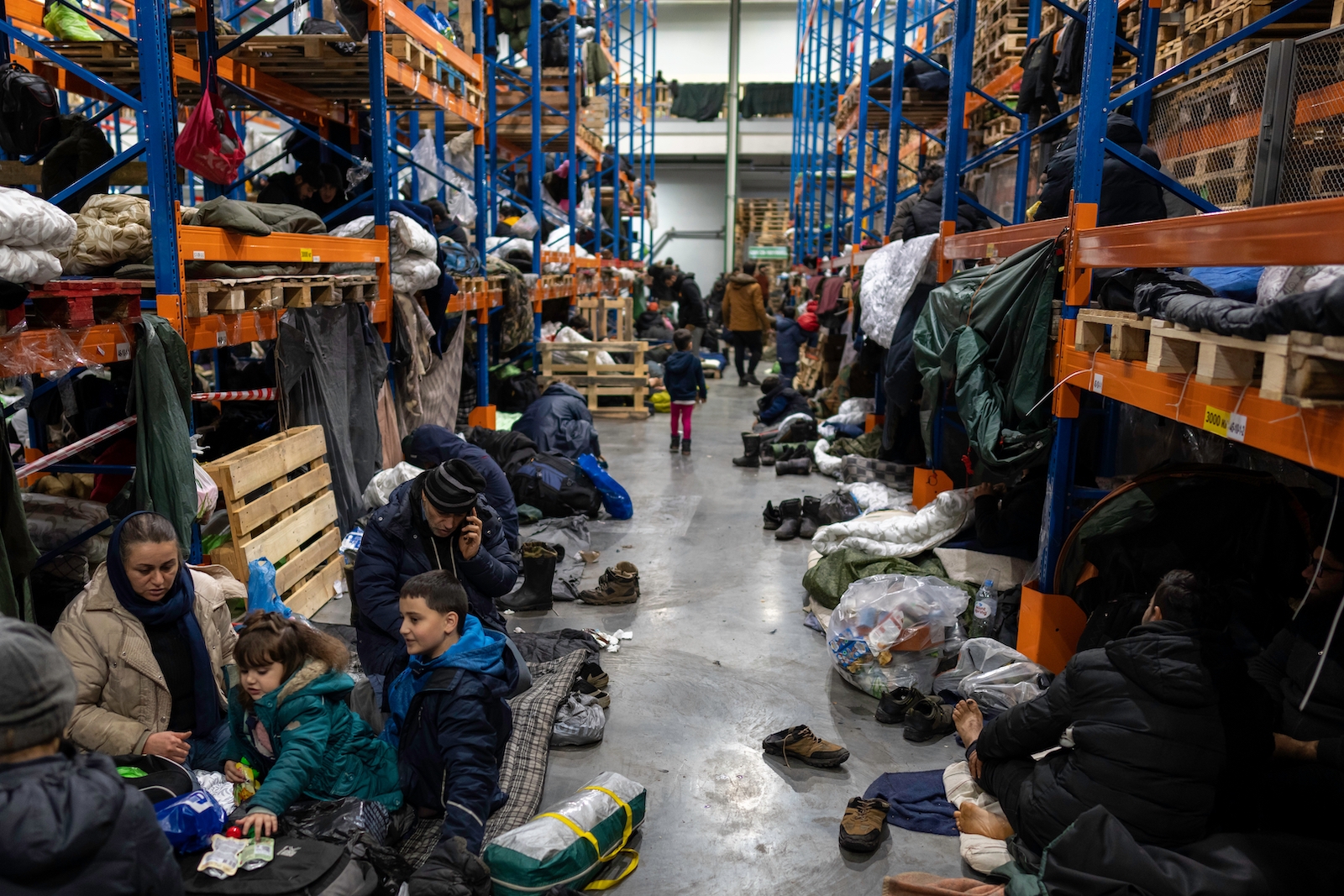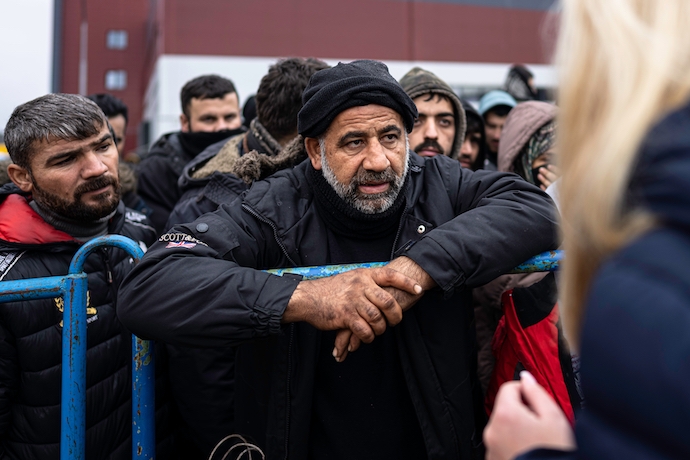
Migrants and Lukashenko: Putin’s Pawns in Hybrid Warfare
Belarusian soldiers have escorted thousands of migrants in recent months to the borders of Poland, Lithuania, and Latvia. The crisis is escalating as temperatures drop and migrants remain trapped between borders. The European Union has accused Belarusian President Alexander Lukashenko of “weaponizing migrants” for a “hybrid attack” in retaliation for sanctions imposed in June. This is not an isolated “attack” by an aggrieved dictator, but rather a geopolitical crisis drawn from the playbook of Lukashenko’s sole patron—Russian President Vladimir Putin.
In August 2020, Lukashenko extended his 27-year-rule when he won an election widely denounced as fraudulent. Facing unprecedented pro-democracy protests led by opposition candidate Sviatlana Tsikhanouskaya, Lukashenko used state repression and political deals with Putin to preserve his regime’s security. Putin is now reconfiguring the Belarusian state to support his geopolitical goals. The United States should engage with its regional NATO allies to coordinate responses to emerging security concerns and support Belarusian leaders and civil society organizations advocating for democracy in exile.
Politically, Minsk emulates Moscow by using state powers to repress and imprison activists and independent media. Putin is also pressing for constitutional reform, potentially to transfer power to a pro-Kremlin figure post-Lukashenko. Economically, Putin and Lukashenko recently signed an agreement outlining 28 integration programs. Militarily, within the last year, the two countries have conducted a record number of joint military exercises, established a shared military training center in Belarus, and signed a five-year strategic partnership.
In response to these developments, the EU broadened sanctions to 183 individuals and 26 entities in Belarus. Meanwhile, the U.S. has condemned human rights abuses and imposed sanctions on 84 individuals and 51 entities tied to the regime. However, public messaging has not deterred repression, and sanctions-based policies have not altered Lukashenko’s behavior.

The U.S. should provide humanitarian, diplomatic, and defensive support to Poland, Latvia, Lithuania, and Ukraine. Short-term humanitarian assistance to frontline organizations can help manage the migratory influx. U.S. diplomacy can continue through the U.S. Mission to NATO, the Baltic Security Initiative, and the Lublin Triangle. Defensive support could include deploying specialized units to supplement host nation gaps, delivering air and missile defense support, and providing intelligence. Minsk and Moscow are seeking to sow mistrust in the Europe-Russia “buffer zone.” The U.S. can deter escalation and reaffirm U.S. support for the territorial integrity of its regional allies.
The U.S. should also invest in Belarus’ democracy movement. Lukashenko’s impulsive and bellicose behavior ultimately leaves the country’s future in the hands of political activists, independent media outlets, and civil society organizations exiled to neighboring countries. The U.S. should organize funding, technical resources, and educational opportunities for these pro-democracy leaders. The U.S. can integrate these efforts into existing programs, such as the USAID-funded media program in Ukraine and the “EU4Belarus” assistance package. Supporting exiled Belarusians is a strategic move to counter “Russification” efforts and further universal rights underpinning American foreign policy.
The Belarusian opposition must also become a legitimate political body. The U.S. should build upon the 2020 protests by transferring technical expertise and financial resources to political and civil society groups. The U.S. can coordinate this assistance with regional non-governmental organizations. For example, the National Endowment for Democracy can partner with NGO coalitions in Lithuania and Latvia in supporting Tsikhanouskaya’s Coordination Council. Transforming the Belarusian opposition into an effective political force would reflect citizens’ demands and reinvigorate democratic momentum in the region.
Strengthening engagement with NATO allies and the Belarusian diaspora requires substantial financial investment and resource allocation. However, the United States would be aligning itself with the significant actions its European counterparts have taken to support the pro-democracy movement and demonstrate regional solidarity. The multilateral nature of this approach would reinforce their impact.
The events unfolding along the EU-Belarus border reflect a geopolitical context that has shifted in Putin’s favor since August 2020. Russia’s steady consolidation of control over Belarus is nearly a fait accompli. Unwarranted aggression must be countered with resolve to secure NATO’s eastern flank. Unjust treatment and repression must be met with a commitment to those in need. Unprecedented domestic mobilization must be amplified with support to future Belarusian leaders. Now is the time for the U.S. to demonstrate its solidarity with those who embody the principles of safety, dignity, and freedom that are at the core of democracy.

